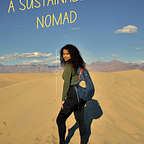And there is Nothing New Under the Sun…
Eagle. Bear. Snake. Wolf. Frog. Faces of creatures juxtapose with eyes staring wide with a story to tell.
The faces tower over me carved from western red cedar and shaped to form totems that retell First Nation stories, both real and mythical.
The stories weigh the air with their presence. I look down at the brass plaque with raised, etched lettering and read aloud:
POTLATCH.
I thought to myself, this sounds familiar, like the potlucks we have with friends, coworkers, and loved ones in America. As I stand in Stanley Park, Vancouver, British Colombia, Canada, I wonder why I have never seen such displays of indigenous culture in the states.
As the holiday we Americans celebrate as Thanksgiving comes and goes, I fondly reminisce over the solo trip I took from Seattle, Washington to Vancouver.
Back to the plaque, I continue reading, eager for the true meaning behind the word. I find that they are connected to the totems. Potlatches are held in honor of the memory, event, or person that a totem may commemorate. Totems may also be erected during a Potlatch.
They are unique to the indigenous people of the Pacific Northwest in their use to affirm or reaffirm social status through gift-giving or gift-destroying feasts.
As I continue to find out the truth about Potlatches, the Encyclopedia outlines several aspects of the event:
- Ceremonial formality by inviting guests
- Speeches
- Distribution of goods by the donor or funder of the potlatch based on the social status of the recipients
- Gathering size, which represents the rank of the donor
- Great feasts
- Generous hospitality
- Wide publicity
- Validation of claims to social rank
Who knew that so much ceremonial pomp was infused in these gatherings centuries ago?
I was disgusted to find out that at one point potlatches were criminalized by the Canadian government and many of these events had to take place underground. As I reflected on this history, and that of the American tradition of Thanksgiving, what I found missing was the voice of these tribes in how they celebrate.
National Geographic recently published several articles in honor of #IndigenousPeoplesMonth, highlighting the work of several indigenous women who are making a space for themselves in the tourism industry by sharing their culture.
Brenda Holder is one such woman who owns and operates tours and workshops through Mahikan Trails. While these voices are long overdue for sharing with the world, cultural preservation efforts like this one are especially vulnerable to tourism.
Several indigenous tours have designed staged acts that play up ‘Wild West’ narratives and, at times, guests’ expectations for a ‘native’ cultural event. Bringing back the authentic voice requires us to be mindful in what cultural activities we are fueling with our dollar and to include indigenous voices from the onset to participate in the tourism economy.
Experiences with Indigenous culture like this one, whether in-person or virtual, inspire me to keep an open mind as I observe this holiday season. I think about the meaning behind our countries’ traditions and begin to redefine age-old depictions of the American Thanksgiving instead growing in my appreciation for their origins.
Today, November 30th marks the last day of #IndigenousPeoplesMonth. As such, I can think of no better way to celebrate than to give back this p.s.travelstory to the world.
Additional Reading
National Geographic
400 years on, the Pilgrims get a Reality Check
These Indigenous women are reshaping Canada’s tourism industry
National Park Service
Tribal Tourism and Native Voices in Parks
Totem Poles in Stanley Park, Vancouver, Canada
Mahikan Trails
